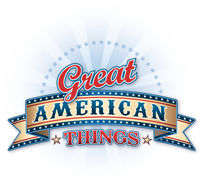Americana: Boy Scouts of America

The Boy Scouts of America celebrate 100 years of instilling values such as individualism, patriotism, courtesy, and respect. uploaded by scccbsa.org.
I was a Cub Scout back in my hometown of Newport News, Va., and Mrs. Ranny Leake was my den mother. My memories of scouting are sketchy; we had that (what seemed then) cool uniform that we were allowed to wear to school one day a week…and we had to do things to earn merit badges. And I learned to be friendly, courteous, kind, cheerful, and brave. More or less.
The Boy Scouts of America was incorporated on this date exactly one hundred years ago – February 8, 1910. America’s large cities were filled with boys who’d never experienced the great outdoors, the first street kids the country had known. The values that the Boy Scouts stand for – individualism, patriotism, discipline, and respect for authority – were missing. Some concerned men chose to emulate what England’s Lord Robert Baden-Powell had just created, which came to be called the Scouting movement. Lord Powell said its goal “is to develop among boys a power of sympathizing with others, and a spirit of self-sacrifice and patriotism.”
For a century now, boys have come to internalize those values through the program of the Boy Scouts. Scouts share responsibilities and apply skills learned at meetings. From the littlest Cub Scout to the mature Eagle Scout, they learn positive values in a society in which values are somehow outdated.
But are the Scouts as relevant in today’s world as they were during more innocent times? Peter Applebome, and editor of the New York Times, participated in the Boy Scouts with his son. Of the experience he said, “Scouting’s core values … are wonderful building blocks for a movement and a life. Scouting’s genuinely egalitarian goals and instincts are more important now than they’ve ever been. It’s one of the only things that kids do that’s genuinely cooperative, not competitive.”
And the Boy Scouts are still relevant in the inner cities as well. Writer Heather Mac Donald of the Manhattan Institute visited a Scout meeting in New York City, and wrote: “At the conclusion of the Troop 409 meeting in Bedford-Stuyvesant, the boys thank me in unison for coming. Two fawn-like boys at a meeting on the Lower East Side politely introduce themselves, offering their hands. When I ask one of them, Ian, where he got his good manners, he clutches his handbook to his chest and says, ‘I’ve practically memorized my Boy Scout book.’ The handbook says nothing about introducing yourself to adults; apparently its civilizing influence is wider than its literal words.”
[youtube=http://www.youtube.com/watch?v=wcxqL_TuECs&hl=en_US&fs=1&color1=0x006699&color2=0x54abd6]

